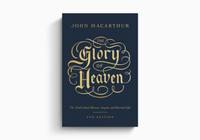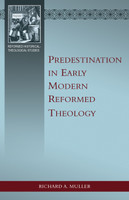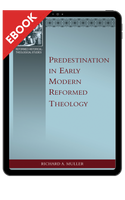
Dictionary of Latin and Greek Theological Terms: 2nd Edition (Muller)
- Affordable shipping (free $100+)
- 100,000+ customers served
- "Wonderful books, great prices, awesome customer service." – Ivan, IL
This indispensable companion to key post-Reformation theological texts provides clear and concise definitions of Latin and Greek terms for students at a variety of levels. Written by a leading scholar of the Reformation and post-Reformation eras, this volume offers definitions that bear the mark of expert judgment and precision. The second edition includes new material and has been updated and revised throughout.
Author
Richard A. Muller (PhD, Duke University) is P. J. Zondervan Professor of Historical Theology Emeritus and senior fellow of the Junius Institute for Digital Reformation Research at Calvin Theological Seminary in Grand Rapids, Michigan.
Endorsements
"Of the thousands of books in my academic library, there are only three titles that I treasure so highly that I keep one copy at my office and another at home. In the early years of my academic career, Richard Muller's dictionary was the very first to attain such esteemed status. Not only is it a repository of information impossible to find so quickly anywhere else, it is just a darn good read. It's a primer of Latin syntax and at the same time a sophisticated introduction to careful theology. It's a thrill to see it newly improved, some thirty years later! Serious students of Latin, serious students of theology, and--frankly--serious students of clear thought will be in Richard's debt for another generation to come. Well done!"
John L. Thompson, Fuller Theological Seminary"If one of the most well-read theologians of his generation presents a dictionary, one has high expectations, and Richard Muller does not disappoint! Besides more common terms, one also finds here lucid explanations of rarer scholastic expressions, so that even the specialist will learn and profit from this book. This is a must-have for students and professors and for everybody who studies the Christian tradition."
Ulrich L. Lehner, Marquette University
"Few theological resources offer as much insight and useful information as Muller's dictionary. I regularly encourage my students to buy this book and read it cover to cover! This is more than a reference occasionally to be consulted; it is a key to unlocking the riches of classic Reformed theology. I highly recommend this book to students, pastors, and scholars--to anyone who wants a deeper understanding of the historic Protestant faith."
J. V. Fesko, professor of systematic and historical theology, Westminster Seminary California





